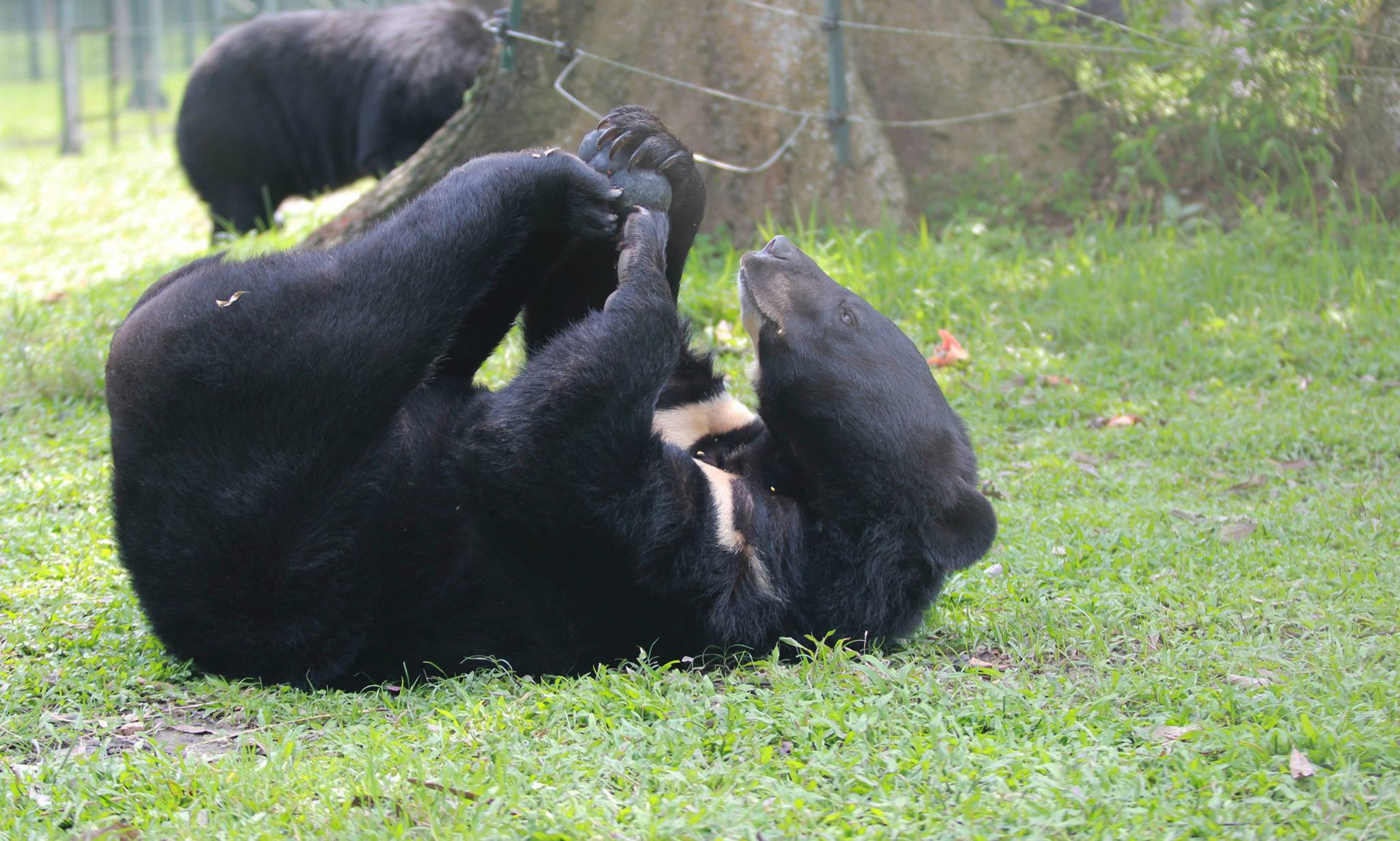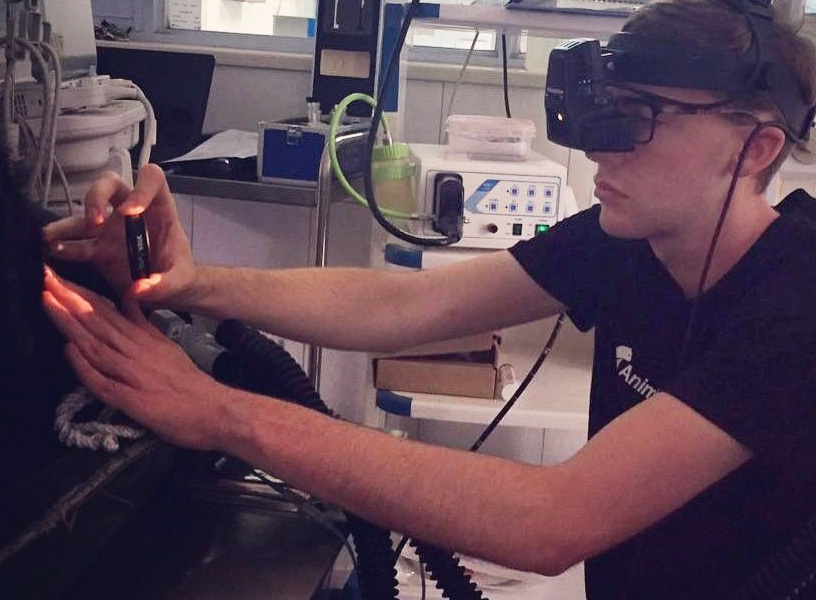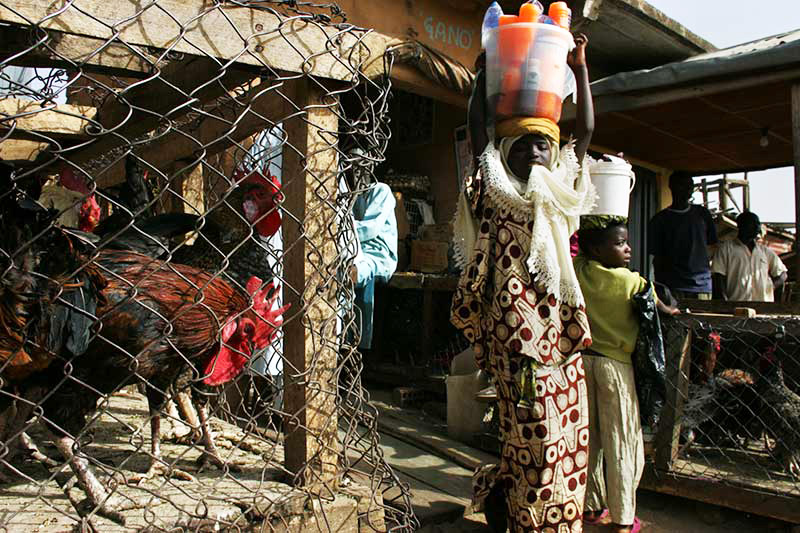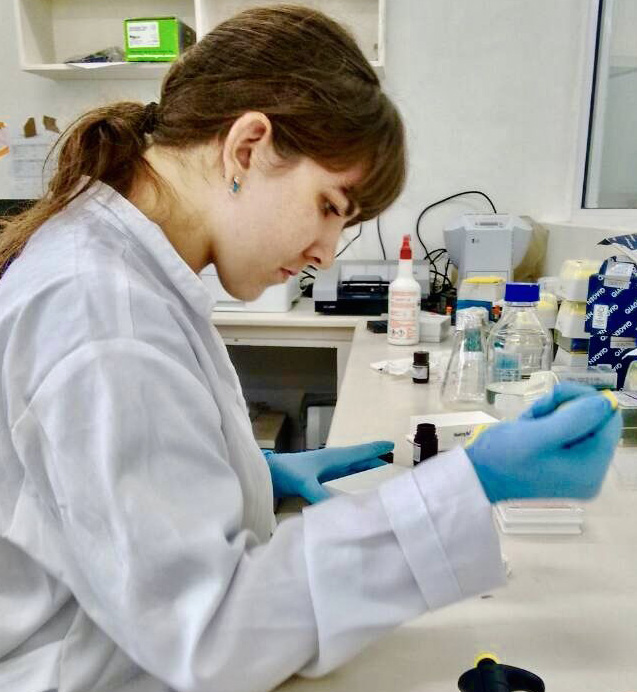Traveling the World for Planetary Health

Veterinary Students Find Meaning in Global Clinical Research
Story by Sheri Englund for Global Cornell
When Cornell veterinary student Perry Koehler, DVM ’20, was in China's Sichuan province last summer, he noticed something peculiar about the product packaging. “Wine, teas, toothpaste, even household cleaners,” he lists off, “all marked with a bear.”
The symbol is powerful advertising in East Asia. It indicates bear bile, a common prescription in traditional Chinese medicine used to treat everything from sore throats and hemorrhoids to hangovers. Demand for the folk remedy drove Asiatic black bears onto the endangered species list and into factory farms, where they are confined in cruel “crush cages” for continuous bile extraction.

At a bear refuge near Chengdu, Koehler tested acetaminophen as a treatment for the lameness and foot pain that rescued bile bears often suffer after their long confinements. He found that very low doses of the readily available pain reliever produced significant results, without further damage to the bears’ ravaged livers.
Koehler is one of 14 students from Cornell’s College of Veterinary Medicine who traveled to destinations around the world last summer for clinical research that advances planetary health.
“Public health is really the history and heart of veterinary medicine,” says Alex Travis, the college’s associate dean for international programs and public health.
Many Cornell students have worked internationally to save wildlife species threatened with extinction, improve food animal production to reduce environmental impacts and fight emerging diseases that can spread from animals to people, according to Travis. “These research experiences shape students’ careers and are often literally life-changing,” he says.
The college’s Expanding Horizons program, now in its 30th year, sends student researchers to developing countries. Students who worked in industrialized nations in 2017 received funding support through the Global Cornell initiative. Jai Sweet, the college’s director of student services and multicultural affairs, coordinates all of the international clinical experiences.

The summer of 2017 found Cornell students working to improve dairy cow health and milk quality in Latin America, identify wild species hosting West Nile virus in Malaysia, track animal welfare in Japan’s cat cafés, and look for human disease risks in Viennese rats. In many cases, their research focused on practices—from agriculture to conservation—that bring animals and humans into close contact.
“Because veterinarians work at the interface of people, animals and the environment, our profession is uniquely positioned to benefit both animal health and human health,” Travis explains. Important threats to global health, including epidemic diseases, are emerging in the contact zones, he says, and the needs of developing nations are often the greatest.
Leanne Jankelunas, DVM ’20, experienced one of these contact zones in Ghana’s live bird markets, where she tracked avian influenza in the chickens, turkeys, guinea fowl, ducks and pigeons for sale. She visited markets around the capital city of Accra to collect samples, talk with sellers and identify food safety and hygiene practices that increase bird handlers’ risk of infection.

It didn’t surprise Jankelunas to find pathogens and antibodies from past infections in the birds, but she was disturbed to discover that public health messages targeting market leaders have not trickled down to sellers. Most do not wash their hands often, wear gloves or masks, or change clothes after handling birds.
“As I would talk to these people, it would break my heart,” she says. “They’re on the front line, but most have no idea that people can get sick from this work.”
From rapid turnover at the markets to suspicion of government workers, the communication challenges are complex, Jankelunas says. To prevent future bird flu outbreaks, the international community needs to act now with top-to-bottom education initiatives and funding for personal protection equipment.
For her own part, Jankelunas hopes to return to the developing world to work on pandemics such as Zika and Ebola. “Before this summer, I was pretty certain I wanted to work in international medicine,” she says. "Going on this Expanding Horizons program was just my way of deciding that this is exactly the kind of work I am meant to do.”

